Photo essay: Indian coffee—a learning journey
Knowledge sharing commences across Indian and Philippine coffee-growing regions
In December, a delegation from the World Coffee Research team—Dr. Tania Humphrey, Director of Research & Development (R&D), Dr. Kraig Kraft, Asia & Africa Director, and Neil Franje, Philippines Country Agronomist—traveled to Karnataka, India. This location is home to the Coffee Board of India’s Central Coffee Research Institute (CCRI). The researchers were joined by a group of coffee scientists, including those from the national coffee authority and several state universities in the Philippines, in addition to staff from ACDI/VOCA, the organization that runs the USDA-funded Philippine Coffee Advancement and Farm Enterprise (PhilCAFE) project.
The purpose of this visit was to participate in an educational experience about how coffee research is organized and conducted in India, with the hope of establishing a direct exchange of knowledge between CCRI and PhilCAFE project participants as the Philippines seeks to expand its own coffee production and R&D capacity.
“India and CCRI have nearly one hundred years of history conducting coffee research. While the Philippines was once a major exporter of coffee, currently there is not a singular institute that conducts coffee research and development,” said Dr. Kraft, “Our goal through this learning journey was to help stimulate research in the Philippines that is relevant to their industry and to have a productive exchange with CCRI and all of our partners and hosts here in India.”
Through this learning journey, the group experienced a multi-day, multi-site immersion throughout the coffee-growing regions of India comprised of tours, demonstrations, presentations, and discussions. One stop was to view an International Multilocation Variety Trial (IMLVT) test plot hosted by CCRI at its main research station at Balehonnur. The group also visited several research substations as well as CCRI’s own trials. There, they were able to observe the unique cultivation systems in place and learn about the research approaches that have led to the successful breeding of both Arabica and Robusta varieties in India.
“I’d like to thank ACDI/VOCA, the PhilCAFE project, and WCR for sponsoring this learning visit,” said Melani Provido, Chief Researcher of the Department of Agriculture for Region XI in the Philippines, “We visited all coffee activities along the value chain and we were able to meet scientists who were generous in sharing their knowledge. We will make sure that whatever we’ve learned in this journey will be used as tools for improving the lives of our coffee farmers in the Davao Region."
Throughout the trip, the group was accompanied by a photographer who was able to capture their experience at CCRI. In addition, our team was able to take a few first-hand shots of their journey. These images portray the work being done in India—and by WCR’s partners across Asia—to change the landscape of coffee for the better.
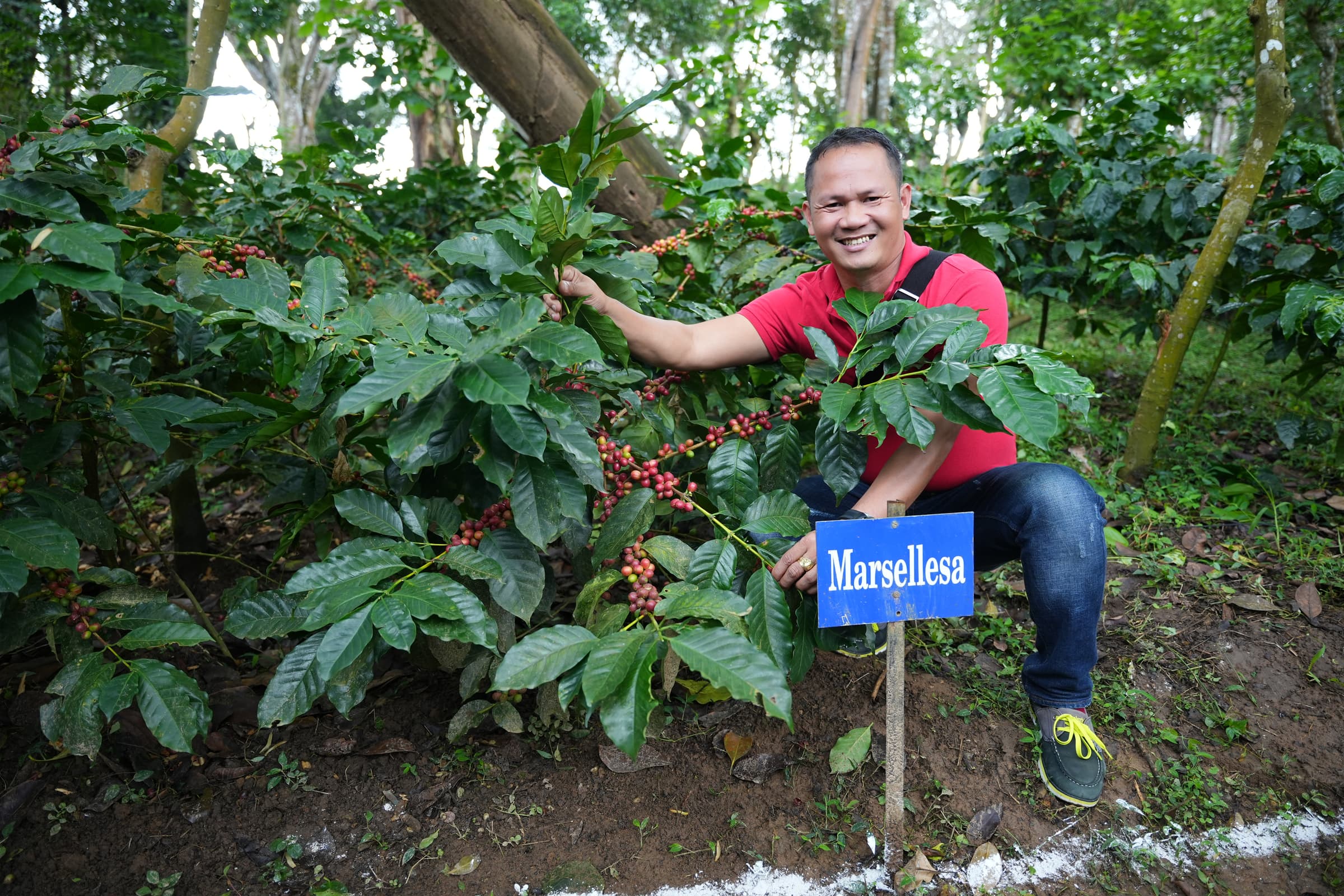
Allan Datu-Imam, a PhilCAFE technical advisor, poses in front of the variety Marsellesa at the Central Coffee Research Institute’s IMLVT plot site in Balehonnur, Karnataka, India.
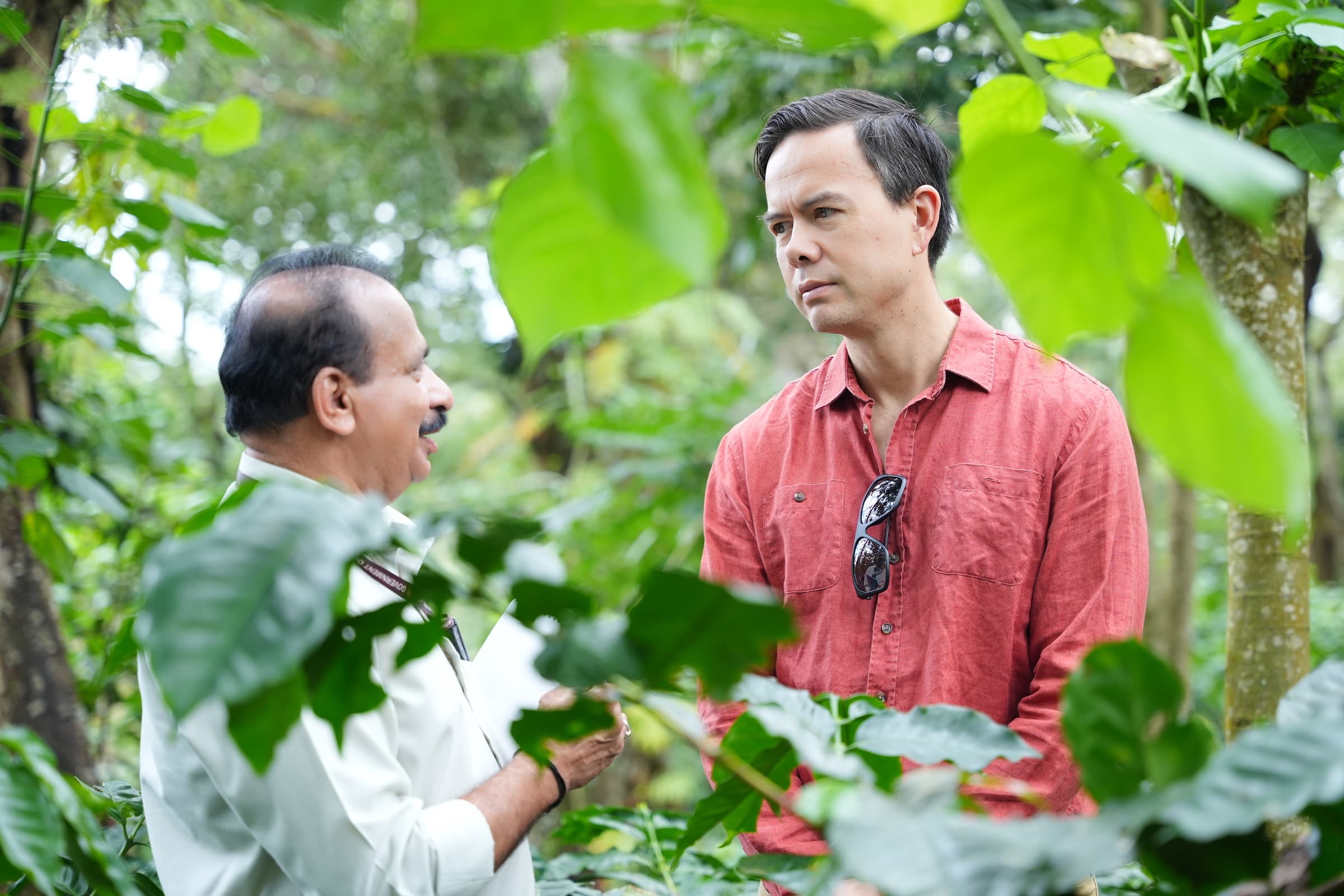
Dr. HG Seetharama, head of the Entomology Division at CCRI and Dr. Kraig Kraft of WCR, discuss disease pressures in Indian production systems.
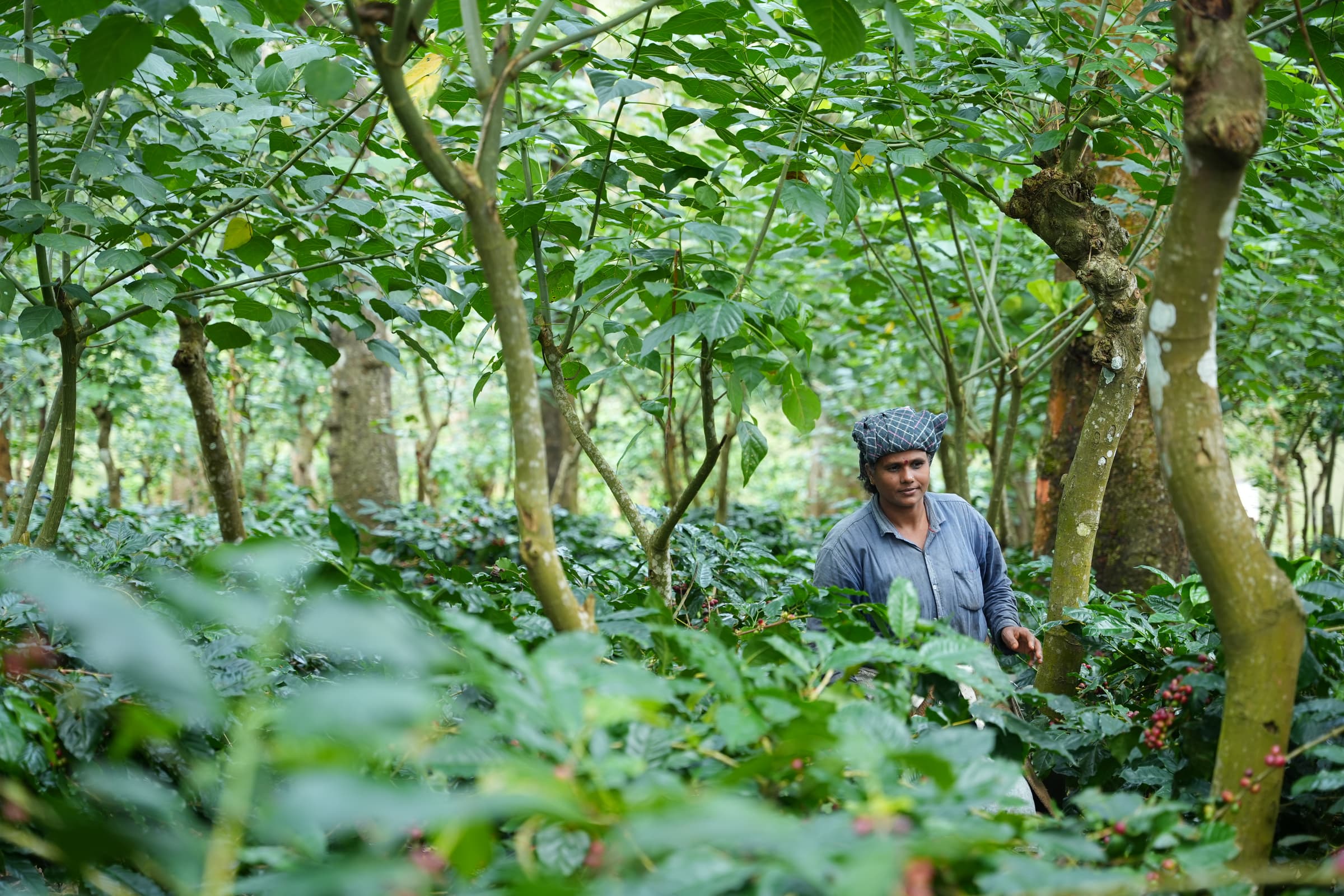
A farm laborer walks amongst the fields at the CCRI trial site, where complex, multi-crop agroforestry sytems have been installed to prevent susceptibility to white stem borer, a pest that invades tree bark in areas of sun exposure.
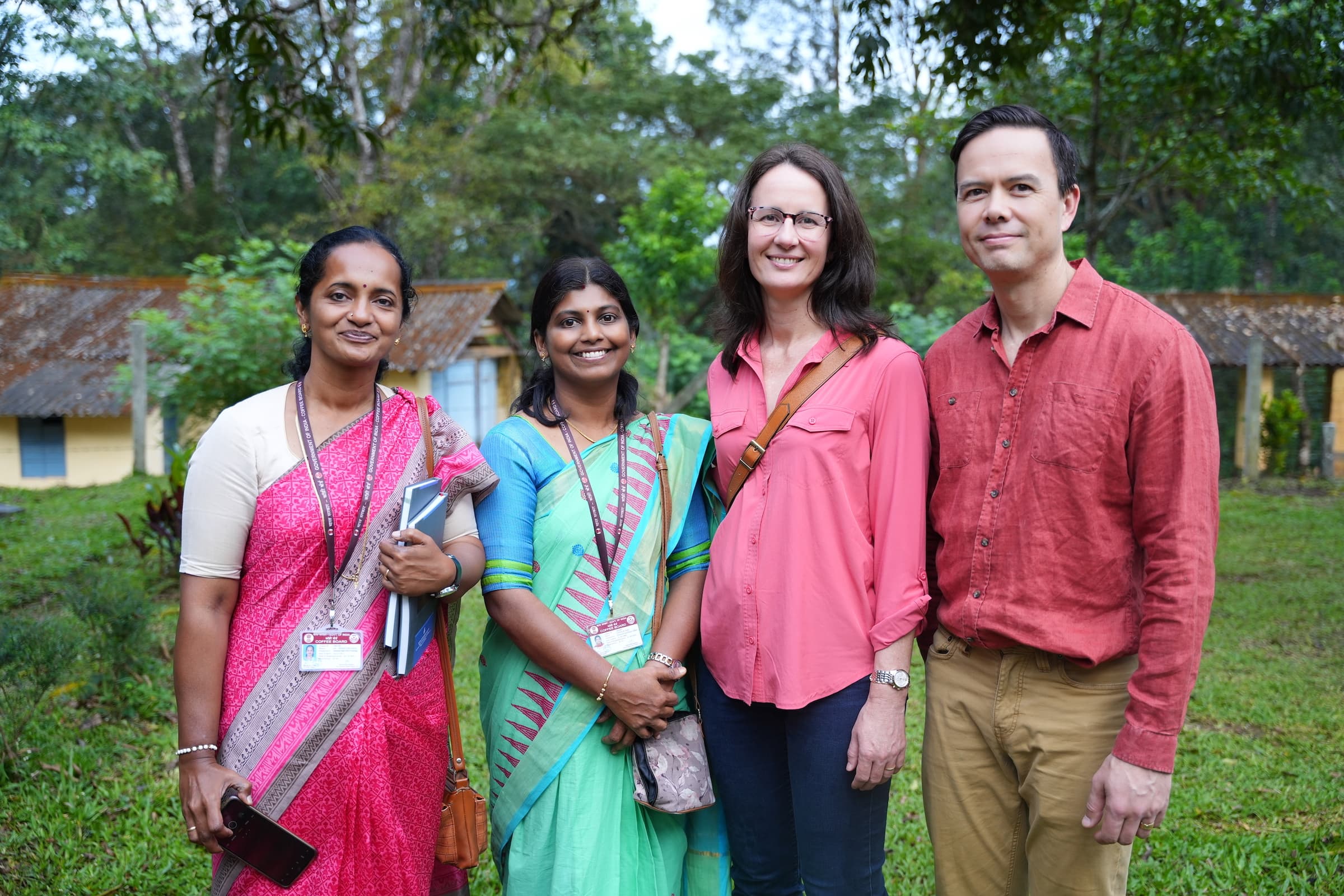
From L to R: Dr. Jeena Devasia, Divisional Head of Plant Physiology at CCRI, Dr. Divya K. Das, Research Assistant at CCRI, Dr. Tania Humphrey, and Dr. Kraig Kraft.
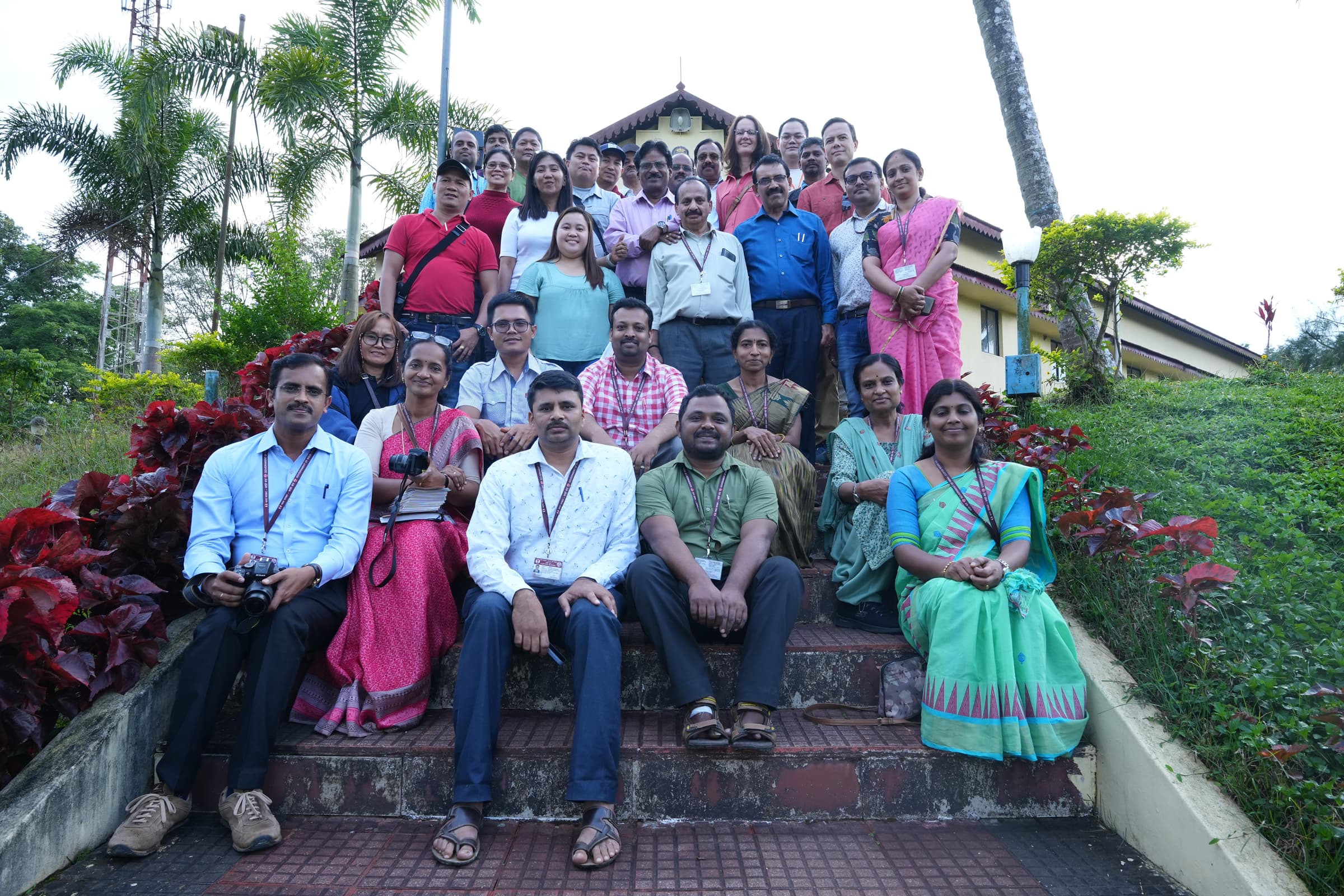
The PhilCAFE technical team, researchers from Philippine Universities, WCR staff members and CCRI staff assemble for a group photo after the day in front of the historic CCRI main building.
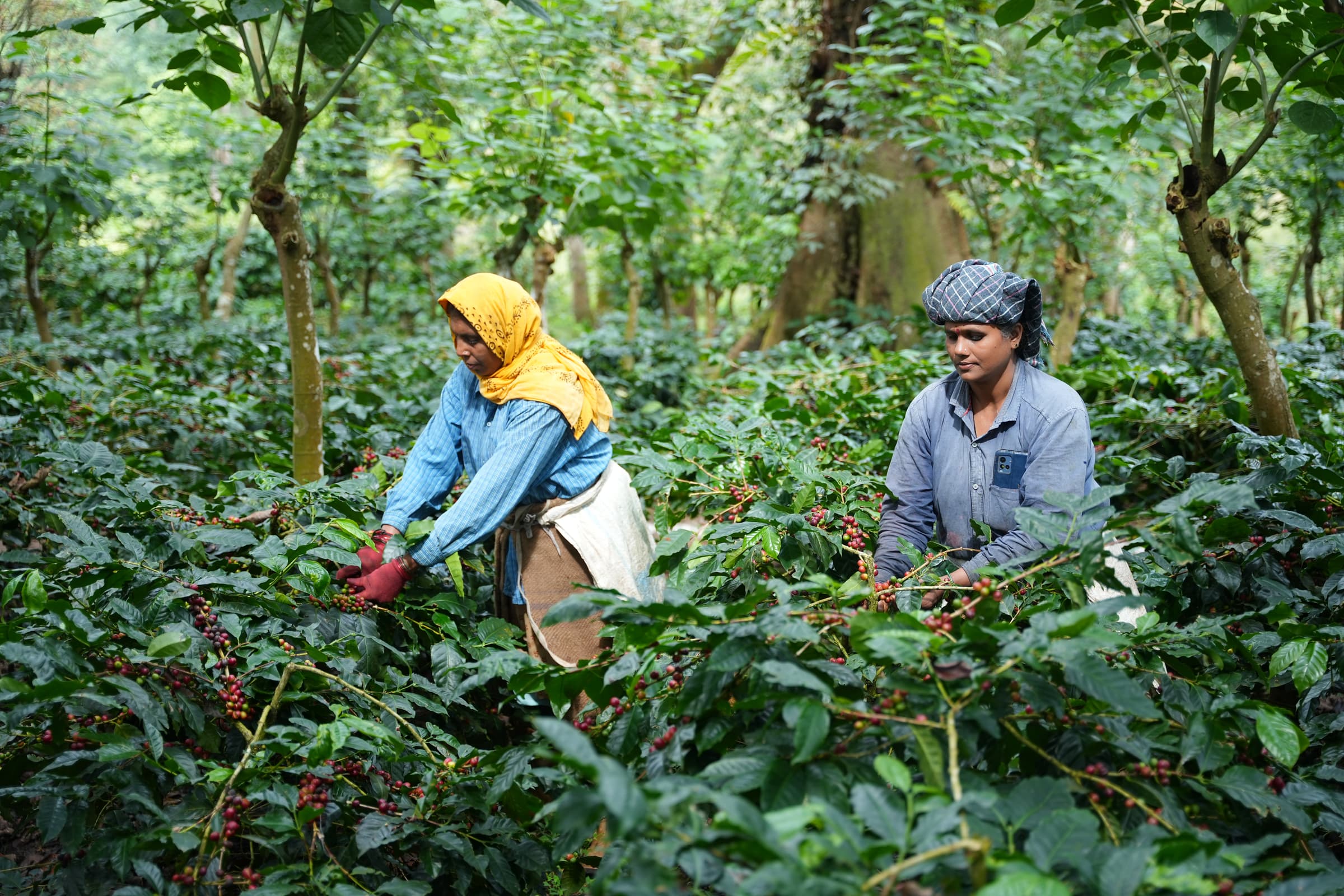
Harvesters pick coffee from CCRI's research plots in Balehonnur, Karnakata India.
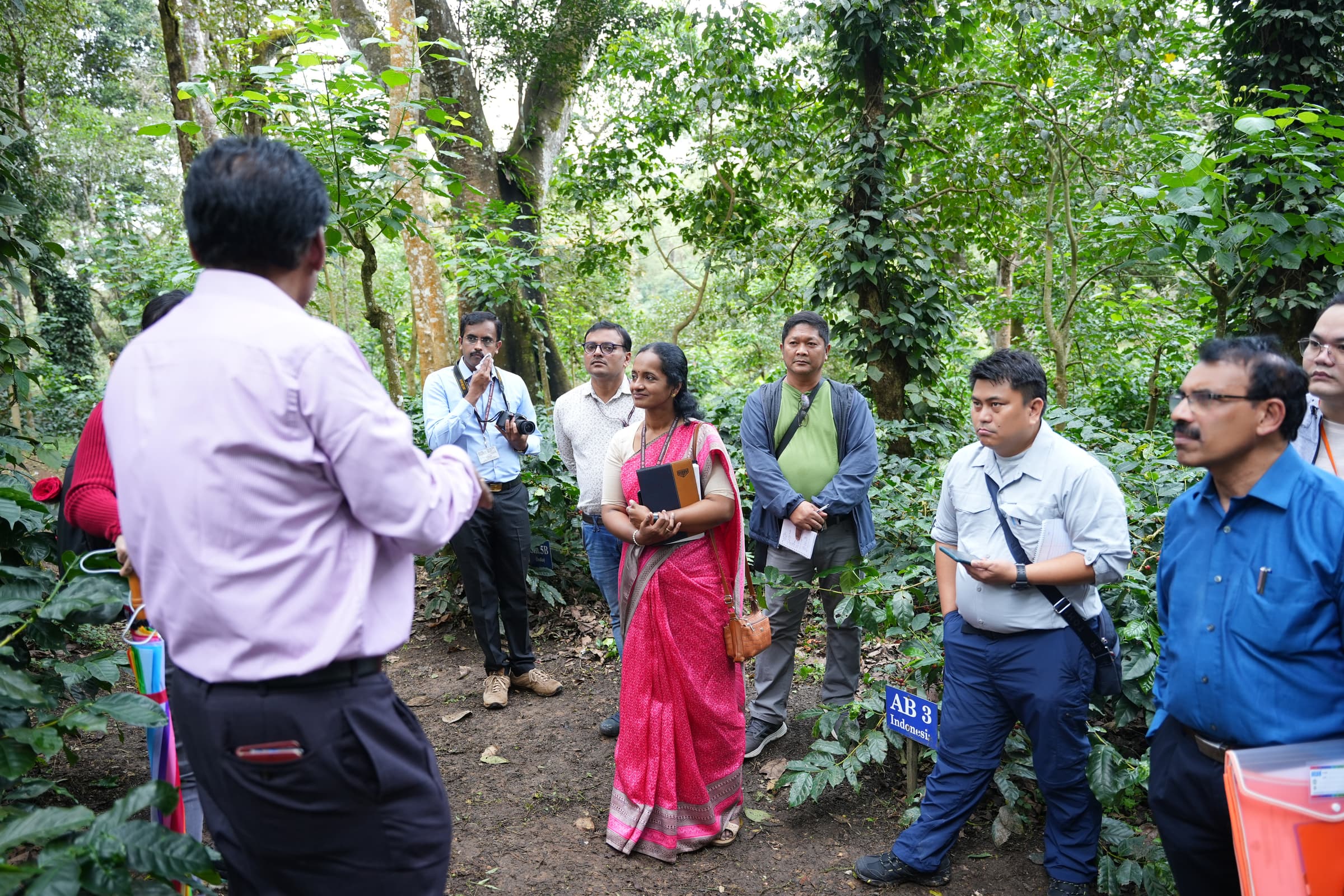
With his back to the camera, Dr. Surya Prakash, Director of Research at CCRI, explains to staff and Filipino visitors about the layout and the design of the IMLVT field trial at Balehonnur.
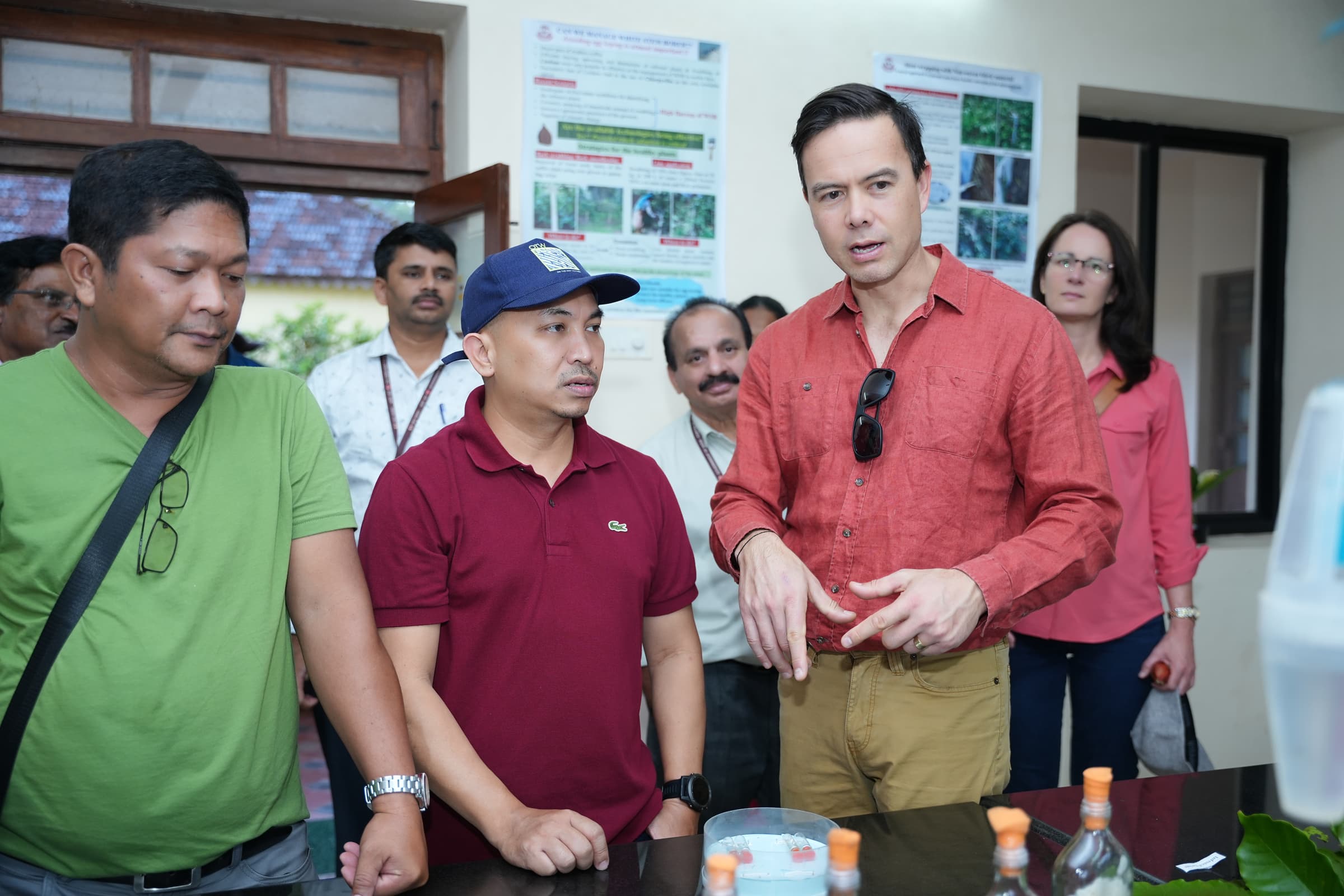
Jun Ramirez, Technical Advisor from ACDI/VOCA, Neil Franje, and Dr. Kraig Kraft, look at a display in the entomology lab at CCRI.
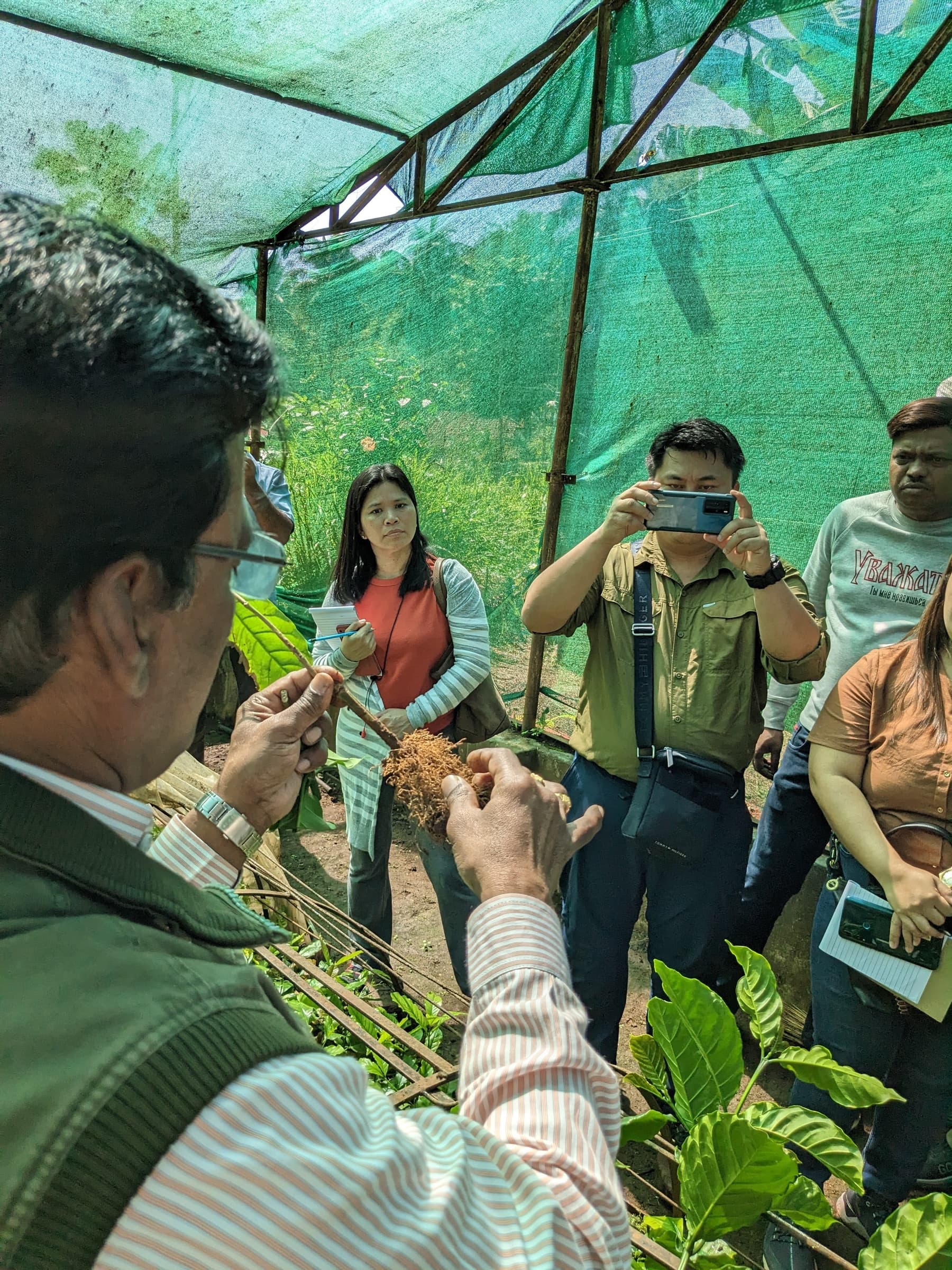
Dr. Surya Prakash explains the process of root development during vegetative propagation to Dr. Miriam Balthazar (Cavite State College) and Dr. Apolinario Gonzaga Jr. (University of Science and Technology of Southern Philippines).
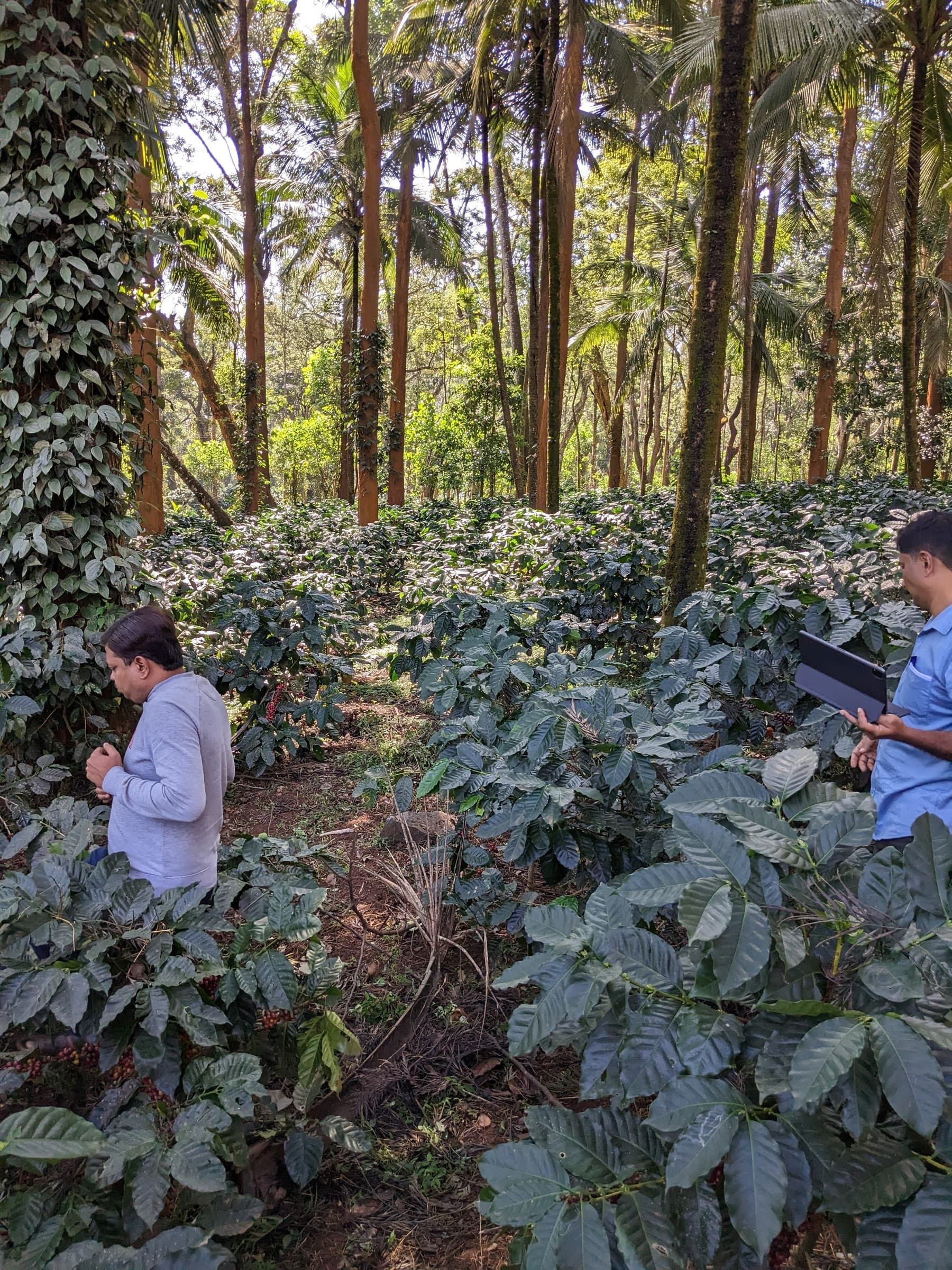
Robusta agroforestry system, with black pepper vines and multiple shade species.
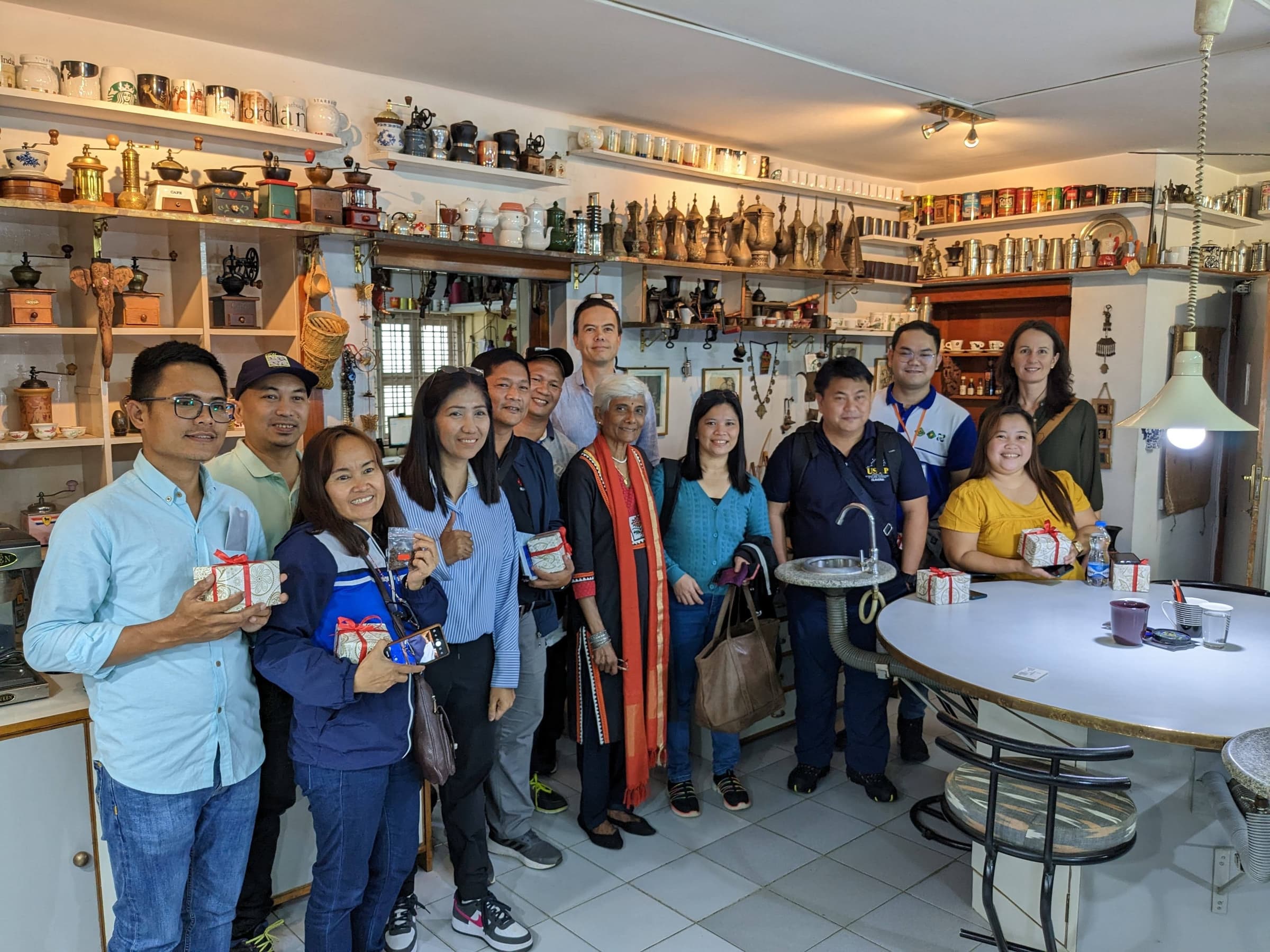
The entire group visits Ms. Sunalini Menon's quality lab (center of the group with long red scarf), which also serves as a small museum of coffee artifacts.